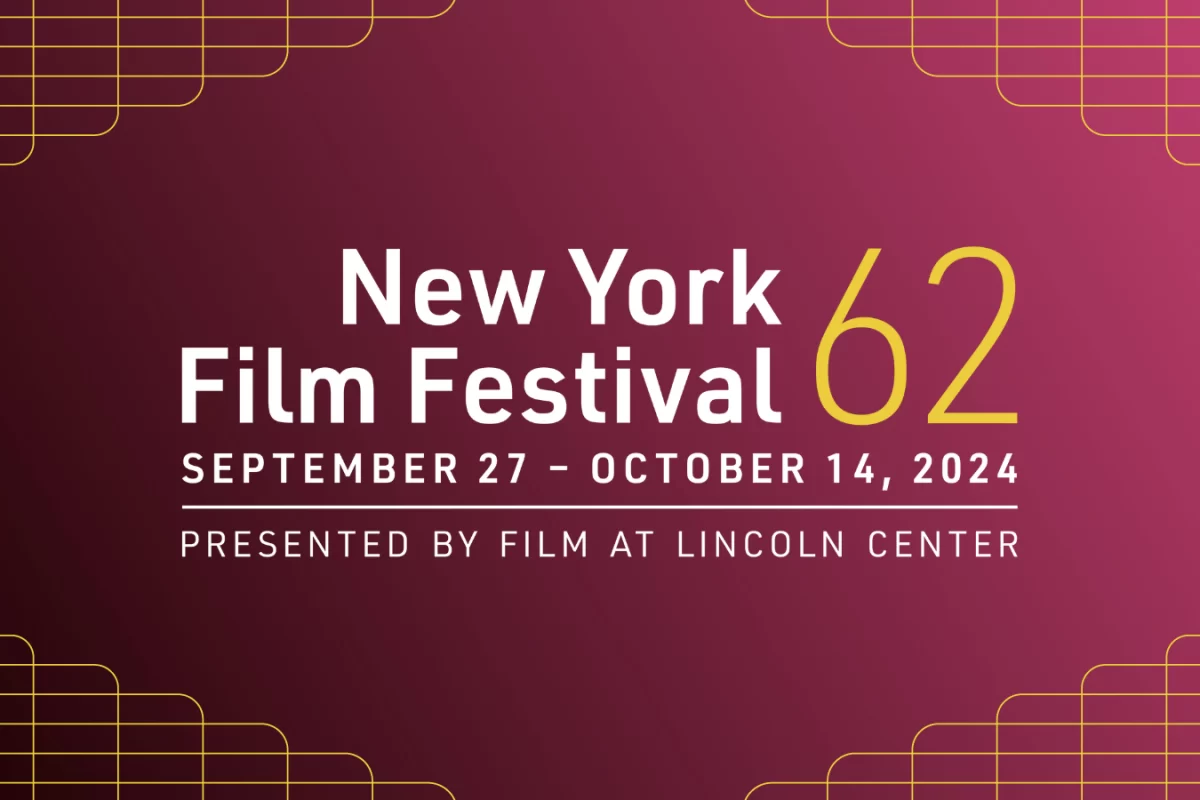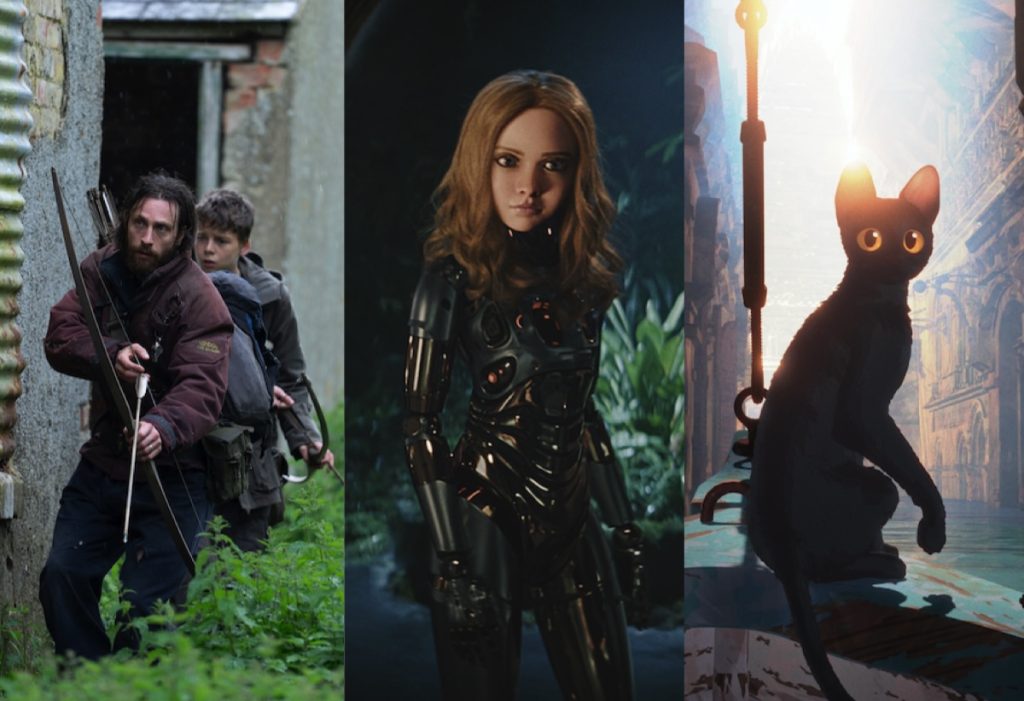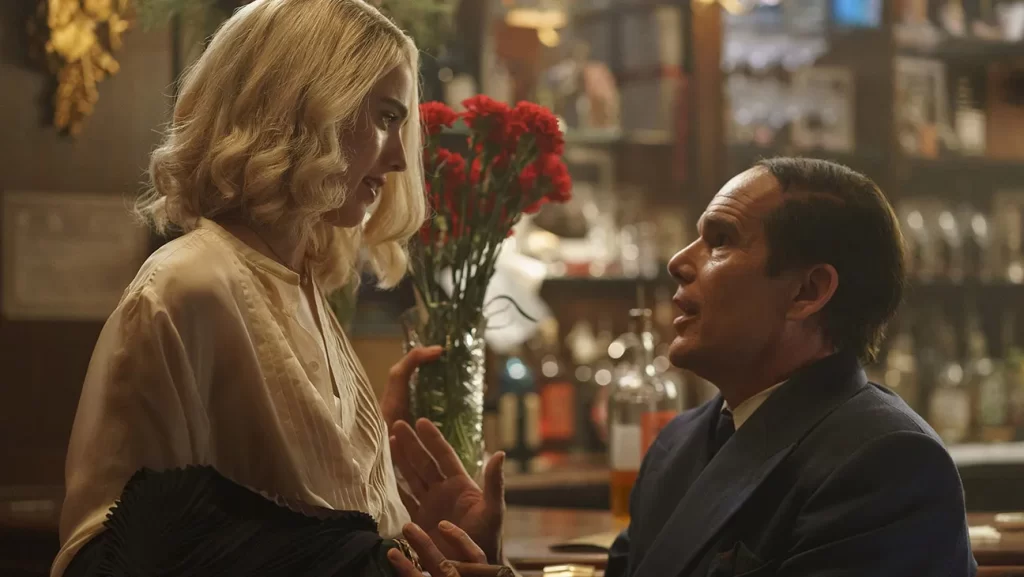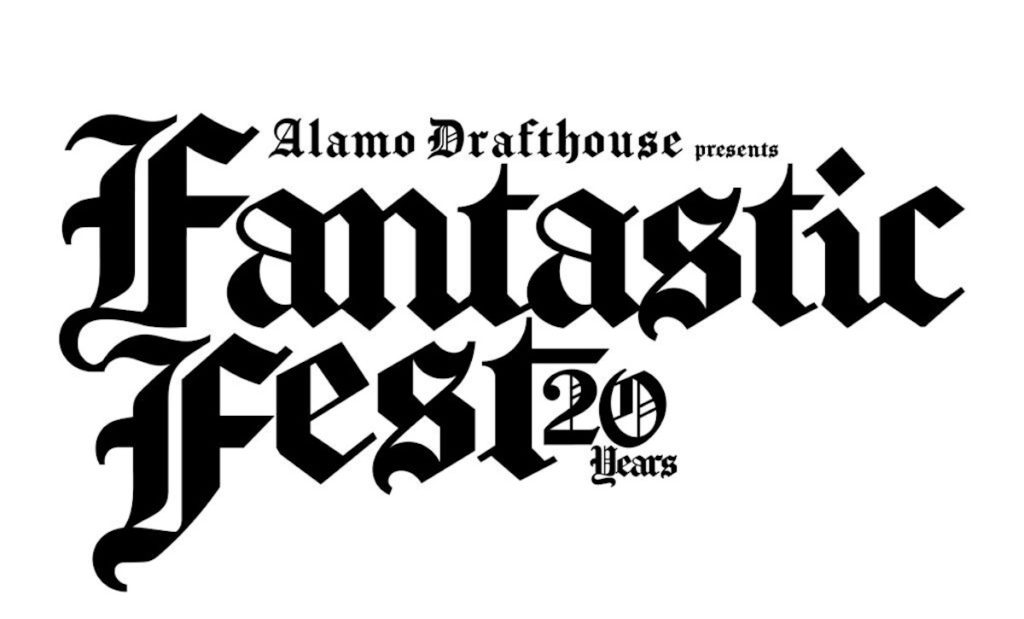One of the things I’ve always appreciated about the New York Film Festival, which wrapped up yesterday, is their programming preference for quality over bragging rights. By the time NYFF hits in the fall festival calendar, TIFF, Venice, and Telluride have all passed, and as the need to dominate “the narrative” has increased for would-be awards films, an early-to-mid October world premiere at NYFF is perhaps too late in the game. Rather than going solely for films that are willing to make that commitment, the festival feels like a bit of a fall survey/round-up, gathering the best from those fests (and Cannes, and Sundance, and a few others) and presenting a full picture of the cinema scene of the year. And this year, it’s a rosy picture indeed.
Making its North American premiere, just after a world debut in London, Blitz finds writer/director Steve McQueen fusing the historical interests of his recent documentary work with the on-the-ground vibrancy of his Small Axe series. It tells a big story in personal terms, with Saoirse Ronan doing a credible Cockney as a single mother who makes the difficult choice to separate with her young son, for his safety, during the WWII bombing campaign of British cities and towns. McQueen sucks you right in, opening with chaos in progress (air raids sirens wailing, fires burning, a runaway firehose wrecking havoc), and that’s his strategy throughout. Air raids and evacuations are things we’ve read about, but in the abstract; McQueen makes this experience visceral and real. It’s full of good moments, and another ace Ronan performance—especially in the fleeting, poignant moments where, in private, her steely resolve falls away—yet I found the closing passages oddly chilly. He lands at what feels less like an organic destination for the story than a fulfillment of genre’s requirement for some kind of tragedy.
It sort of feels insane that it took writer/director Paul Schrader and star Richard Gere so long to reunite, as their 1980 collaboration American Gigolo was such a key picture in both of their careers. But the contrast between that sleek, shiny ‘80s erotic thriller and this contemplative Russell Banks adaptation Oh, Canada (another reunion—Schrader helmed the brilliant 1997 film of Affliction) is clear from the jump; we first see Gere on his literal deathbed, and what follows is a prickly and powerful meditation on both mortality and memory, and what the former does to the latter. Gere stars as a documentary filmmaker who fled to Canada during the draft; Michael Imperioli is a former student who is making a documentary about his teacher, prompting him to tell his own story during a long interview session. Jacob Elordi plays him as a young man, but Schrader uses both actors interchangeably as he walks through his memories, allowing the older version of the character to re-live his life (as you often do in your mind’s eye).
The cinematography (which jumps from black-and-white to color and back again) and editing patterns (herky-jerky and stream-of-consciousness) ape the digressions and sidebars of his wandering mind, as does the jigsaw puzzle construction, which recalls (but does not imitate) Citizen Kane. In another filmmaker’s hands, this could be empty flash, but with a director as austere as Schrader, form follows function; this character is revisiting, rehashing, and rethinking the seemingly fleeting moments and split decisions that made him the man he is, and the point, of course, is not how things happened, but how he remembers them. Oh, Canada is yet another late-career triumph from Schrader, and another reminder that Richard Gere is one of our most gifted (and underrated) actors.
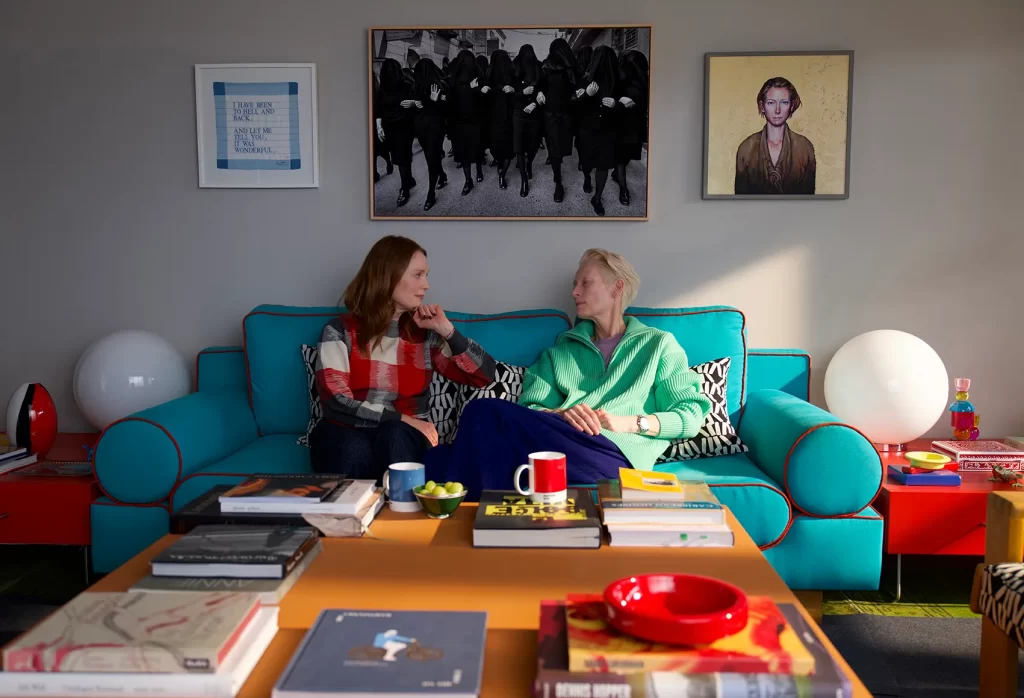
Late in Pedro Almodovar’s The Room Next Door, when he frames a delicate composition of the half-faces of his two leading ladies, it finally snapped into place: Oh, he’s making his Bergman movie. It’s a story of women of a certain age, in close proximity, coming to grand conclusions and realizations about the lives they’ve led, and the inevitability of death. It’s his English-language debut, and there is, it must be said, something slightly jarring about hearing his more direct (or even stilted) dialogue without the layer of cover provided by hearing it in a foreign language and reading subtitles. But he’s not a realist, never has been, so even the clunkier lines are forgivable in light of the soaring strings of Alberto Iglesias’s score and the dead-on performances of Tilda Swinton and Julianne Moore, who sell their characters’ long history and current crises with ease. It’s an unfussy, unhurried bit of melodrama, unapologetically lyrical and enlightened, as his best films are.
It’s important to own one’s biases, so I guess it’s worth noting, before praising The Friend, that I am a middle-aged New York City writer who recently became, for the first time, the human caretaker of a very large dog. So I felt very seen by this tale of a New York City writer (Naomi Watts) who is left in charge of the Great Dane that belonged to her friend and one-time lover, a novelist (Bill Murray) who has committed suicide. I know there’s no such thing as a “good” animal performance—they don’t make the choices that an actor does—but whatever they did to make it seem as thought this big, sweet dog was in mourning, it worked. But there’s more to the picture than Turner and Hooch-style Big Boy shenanigans (though there’s a bit of that); it’s savvy to the ways in which survivors end up playing custodians, not only to animals, but to relatives, ex-wives, a legacy, and a life. And it’s lovely to see Watts in a good movie again—this is a marvelously vulnerable performance, how she conveys a woman who’s learned how to hold it all together, and how she plays the rare moments when she can’t.
There are few neater tricks in drama than to set up a character as comically loathsome, and then turn them into a sympathetic figure. But Mike Leigh pulls it off, and gracefully, in Hard Truths, a new domestic drama that re-teams the famously collaborative director with the gifted Marianne Jean-Baptiste, who co-starred in his Oscar-nominated Secrets & Lies back in 1996. She stars as Pansy, a working-class wife and mother who is perpetually, and often hilariously, complaining; there is no irritation too small, no slight too minor, to warrant a full-scale screed. (She feels like an avatar for Leigh himself, or at least his increasingly curmudgeonly public persona.) Like Secrets, this one culminates in a tense family gathering, where her comparatively jovial sister (Michele Austin) finally asks, simply, “Why can’t you enjoy life?” In a typical movie, this would prompt a witty rejoinder or a tearful monologue, but how her character responds to that question, and how Jean-Baptiste plays it, is absolutely devastating. It’s an awe-inspiring performance, but don’t sleep on her support; as her husband Curtley, David Webber crafts a quiet portrait of a man who’s just kinda broken, and in the way she sighs, rolls her eyes a little, and grasps her sister’s hand, Austin puts across an entire familial history in one, perfect gesture.
The first two-thirds or so of Luca Guadagnino’s adaptation of William S. Burroughs’s Queer are so successful that it’s sort of impressive that it goes so completely off the rails in its third act. The good stuff is the most aimless, a ’40’s-era Mexico City hang with Lee (played by Daniel Craig with a mixture of self-satisfaction and self-loathing) wandering from bar to bar, looking to get drunk and get laid, and we get a sense of being dropped into a story in progress, lives already being led. We understand of the dynamics and (dare I say) politics of these juke joints and the people who dwell in them, and the sex scenes are hot but matter-of-fact; as ever, Guadagnino has a gift for onscreen sensuality that doesn’t feel studied or sensationalistic. But the picture’s late turn into an artsy drug-trip flick feels like desperation; when a movie isn’t really going anywhere, it can look awfully silly trying to navigate to a destination.
Mati Diop’s Atlantics was one of the best movies of 2019, and of the 2019 NYFF; she returns to the festival with Dahomey, a peculiar hybrid of documentary and magic realism. It considers 26 royal treasures looted from the titular African kingdom (now known as Benin) by French colonialists—“the spoils of vast plundering,” according to the deep, electronically enhanced voice that Diop gives to the 26th of them. That personification, and its ruminations, is intermingled with documentary footage of the artifacts being packed, sent, and unpacked. But then she carefully opens up the story, to question or (depending on your perspective) confirm our initial assumptions, weighing heavier questions of ownership, image, and cultural identity. It’s never less than fascinating, but on the heels of a seismic picture like Atlantics, it feels like a bit of a throwaway.
Jacques Audiard is a gifted filmmaker, and he’s certainly going for broke in one of the fest’s biggest titles, Emilia Perez, which is a trans narrative crossed with a telenovela crossed with a crime movie. Oh, and it’s a musical to boot. If that sounds like too much, well, it is; there’s something inherently goofy about transposing singing and dancing into this kind of material, and there are numbers that are just a little too Cop Rock for this viewer. There are individual scenes of real force, and performers that fare well; Zoe Saldaña is fierce, Karla Sofía Gascón does some great stuff with an impossible character, and Selena Gomez plays a big, over-the-top character, but somehow grounds her operatic swings in an emotional reality. The movie can’t match that—it’s a peculiar gumbo of a movie whose ingredients never quite meld.
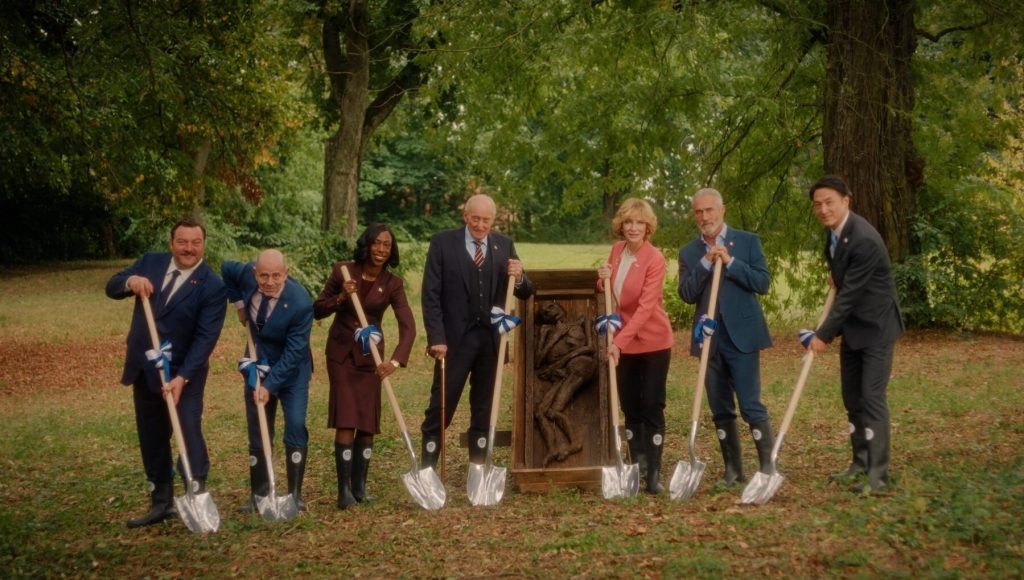
Canada’s resident madman Guy Maddin co-directs (with Evan Johnson and Galen Johnson) the horror satire Rumours, which is sort of like Night of the Living Dead as directed by Armando Iannucci. The setting is the G7 summit, as the seven leaders of the democratic nations attempt to hammer out their draft statement of unity and purpose, an event inconveniently interrupted by something resembling an undead apocalypse. Maddin and his collaborators gamely kid the stereotypes of the nations in question (the United States president is perpetually dozing off), though they do humanize these characters, if primarily to make them look silly; all are essentially helpless, people who have learned how to seem smart, without actually being that. The performers are all having a blast—Cate Blanchett is especially funny as the German chancellor—and the imagery (including a literal zombie circle-jerk) is, well, memorable. Rumours doesn’t always land, but it hits more than it misses.
Italian-born director Roberto Minervini brings his outsider’s eye and signature naturalism to the unlikely canvas of the Civil War drama in The Damned, following a regiment of Union soldiers in the early days of conflict. It’s a dusty, ground-level, lived-in look at the life of an infantryman, focusing primarily (at least in the early passages) on the practicalities, as the older soldiers teach their younger counterparts, kids really, how to keep lookout, load and shoot, and hunt for food. It’s all appropriately aimless until the first shots are fired, a full one-third of the way in, at which point we’ve been lulled into a shared sense of not only peace but solitude. It’s all messy and ugly and scary, in a way that feels authentic, and the way Minervini captures the helplessness and desperation of warfare helps it move from a ground-level impressionist war picture to a sublimely existentialist inquiry.
Payal Kapadia’s All We Imagine as Light opens with documentary-style images of the Mumbai dockyard, and what feels like man-on-the-street voice-overs extolling the virtues of urban living (“In Mumbai, there’s work and money – why would anyone want to go back?”). The film that follows is scripted and staged, but that opening puts the picture squarely in the territory of social realism and observation, and anchors what follows in a palpable sense of time and place. Kapadia tells the story of a pair of overworked nurses who take an impromptu road trip to figure out, or at least temporarily escape, their romantic and emotional woes. It’s a story of stasis, and of recognizing the elements of your life that are beyond your control, but Kapadia approaches this potentially depressing material with a welcome lightness of touch.
Viet and Nam similarly uses a mixture of verite technique and lyrical expressionism to tell the story of Viet (Dao Duy Bao Dinh) and Nam (Pham Thanh Hai), two coal miners who have fallen in love, and find moments of quiet, intense intimacy down in the dark. Writer/director Truong Minh Quy takes pains to share how it sounds, looks, and feels down in those mines, and the 16mm photography is rich and textured. His script is unhurried, setting the scene at a leisurely pace and revealing its story points just as organically; it’s a picture that feels episodic for much of its running time, but the threads that pull us through come together with emotional force at its conclusion.
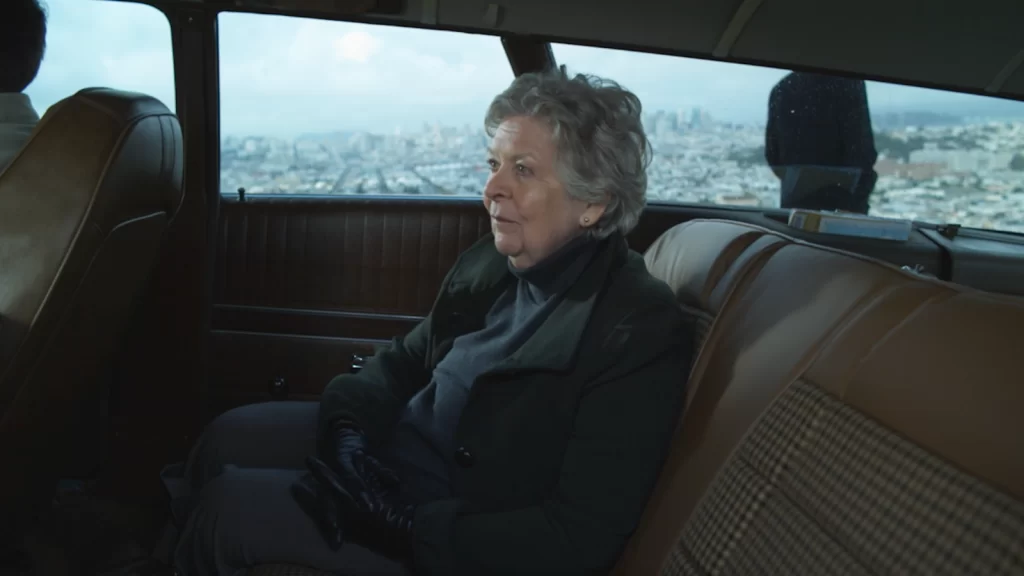
“At her request,” goes the opening text of Suburban Fury, “Sara Jane Moore was the only person interviewed for this film.” Moore, as you may or may not recall (depending on your age) was the seemingly average housewife who baffled a nation when she fired two shots at President Gerald Ford in September, 1975. But there was nothing average about Moore, and director Robinson Devor follows the strange, twisted road that led her to that moment, from would-be actress to FBI informant to attempted assassin, past all sorts of surprising off-ramps (Patty Hearst, Watergate, Attica, the Black Panthers, the Church Committee, COINTELPRO, Cesar Chavez). She’s an unreliable and occasionally hostile narrator, which makes her story all the more compelling—and enigmatic. This is a gripping, stylish documentary about a truly perplexing combination of footnote and skeleton key.
At risk of sounding like a philistine, this festival marked my first encounter with the work of Hong Sang-soo, and I’m afraid his style does not quite work for me—which was a dispiriting discovery to make a few minutes into the first of his two NYFF titles. Both By the Stream and A Traveler’s Needs are basically DIY productions; Hong writes, directs, produces, shoots, edits, and does the music. The results certainly look like a one-man show, but not as a positive—these feel like college film school projects that needed to crew up, all shot on video with flat lighting, hollow sound, clunky pans and zooms, and scenes all shot in one long take, which means the editing is barely there (and therefore the extraneous fuzz and nothing chit-chat of much of the dialogue cannot be edited out).
The airless style renders the conversations—and that’s about all there is, conversation—dull and mundane, and often repetitive and monotonous to boot. It’s an approach that can really leave an actor out to dry, so A Traveler’s Needs is the superior of the two films simply thanks to the presence of Isabelle Huppert in the leading role; the quirks of her persona help fill in the blanks, though there are a couple of moments even she can’t sell. There are moments that work here and there, like a scene of “improvised poetry” in By the Stream that gets at something genuine and unguarded, which feels like what he’s been reaching for the entire time. But ultimately, in both films, we spend the majority of the running time waiting for things to happen, and they only occasionally do.
The best film of the festival—perhaps of the year, we’ll see what the next ten weeks brings—is RaMell Ross’s adaptation of Colson Whitehead’s Nickel Boys, a film that’s somehow both strikingly beautiful and utterly heartbreaking. It’s formally breathtaking, told first-person camerawork, initially from the point-of-view of a young Black man in the ‘60s-era South, though Ross brilliantly tinkers with that formal innovation as he tells his story. Whitehead’s book supplies a riveting narrative, and Ross is true to it, but he also has an impeccable sense for how efficiently a single image can tell an entire story story, and the subtle revisions of selective memory—the things you might remember, and the things you might choose, and work, to forget. It’s a stunning piece of work, and confirms Ross as a major American filmmaker.
